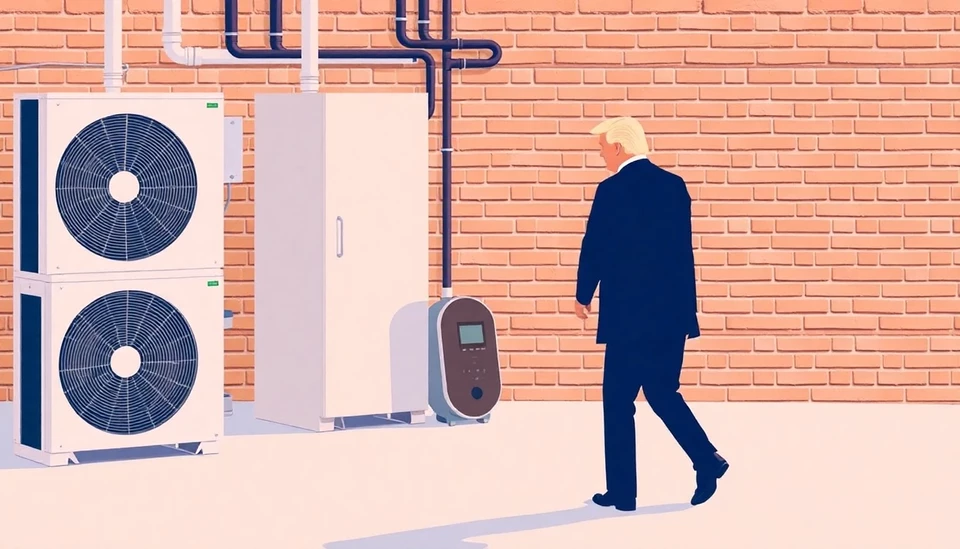
The political landscape is looming over the future of heat pump and electric vehicle (EV) incentives, prompting industry stakeholders to reassess their strategies. With former President Donald Trump’s return to political prominence, discussions around potential shifts in climate and energy policies have intensified. Trump's influence could significantly affect the future viability of various green energy initiatives, particularly those tied to incentives for heat pumps and electric vehicles.
As the nation gears up for the 2024 presidential election, Trump's approach to energy policies, which historically favored fossil fuels over renewables, raises uncertainty among manufacturers, consumers, and environmental advocates alike. The current administration’s commitment to incentivize the adoption of heat pumps—essentially replacing traditional gas and electric heating systems—and the widespread roll-out of electric vehicles could face formidable challenges should Trump reclaim leadership in Washington.
Trump's previous administration rolled back several regulations aimed at cutting greenhouse gas emissions, favoring the coal and oil industries. He has also consistently voiced skepticism about climate change initiatives, branding them as detrimental to economic growth. This backdrop is creating a palpable sense of concern among companies focused on developing sustainable technologies, as the political tide could swing dramatically come November 2024.
With heat pumps recognized for their efficiency in decarbonizing residential heating and cooling, their proliferation hinges on government support and consumer incentives. The existing credits and rebates encouraging heat pump installations and EV purchases are seen as crucial for accelerating the transition to greener options. Yet, as the political climate evolves, businesses are pondering whether to press forward with innovation or brace for a possible rollback of these supportive measures.
Industry experts worry that a shift back towards Trump’s energy stance could stall the momentum of the heat pump market and EV sector growth, ultimately setting back the progress made in reducing reliance on fossil fuels. They argue that a predictable policy framework is essential for investment and consumer confidence in green technologies.
The ramifications are not only confined to manufacturers and innovators; consumers looking to transition from gas-powered appliances to electric, energy-efficient solutions may find their options diminish if federal incentives dry up. Furthermore, as global competition heightens, the U.S. risks falling behind in the race to establish a leading edge in green technology development.
In anticipation of the political elections, companies and investors are urged to engage in proactive planning to navigate potential shifts in policy that could affect the sustainability sector's landscape. Remaining agile amidst political uncertainty may prove crucial for sustaining growth and innovations designed to mitigate climate change.
Maintaining a pulse on the evolving political landscape will be essential for stakeholders keen on pushing forward the intricacies of sustainable infrastructure in the country. With potential changes on the horizon, the debate around heating and transport electrification promises to remain a prominent topic in the coming years.
The outcome of the 2024 election could shape not just the future of energy incentives, but also the broader narrative around climate action in the U.S. As the election draws closer, the stakes have never been higher for the future of both heat pumps and electric vehicles.
#Trump #EnergyPolicy #HeatPumps #ElectricVehicles #ClimateChange #2024Elections #Sustainability #GreenEnergy
Author: Peter Collins




